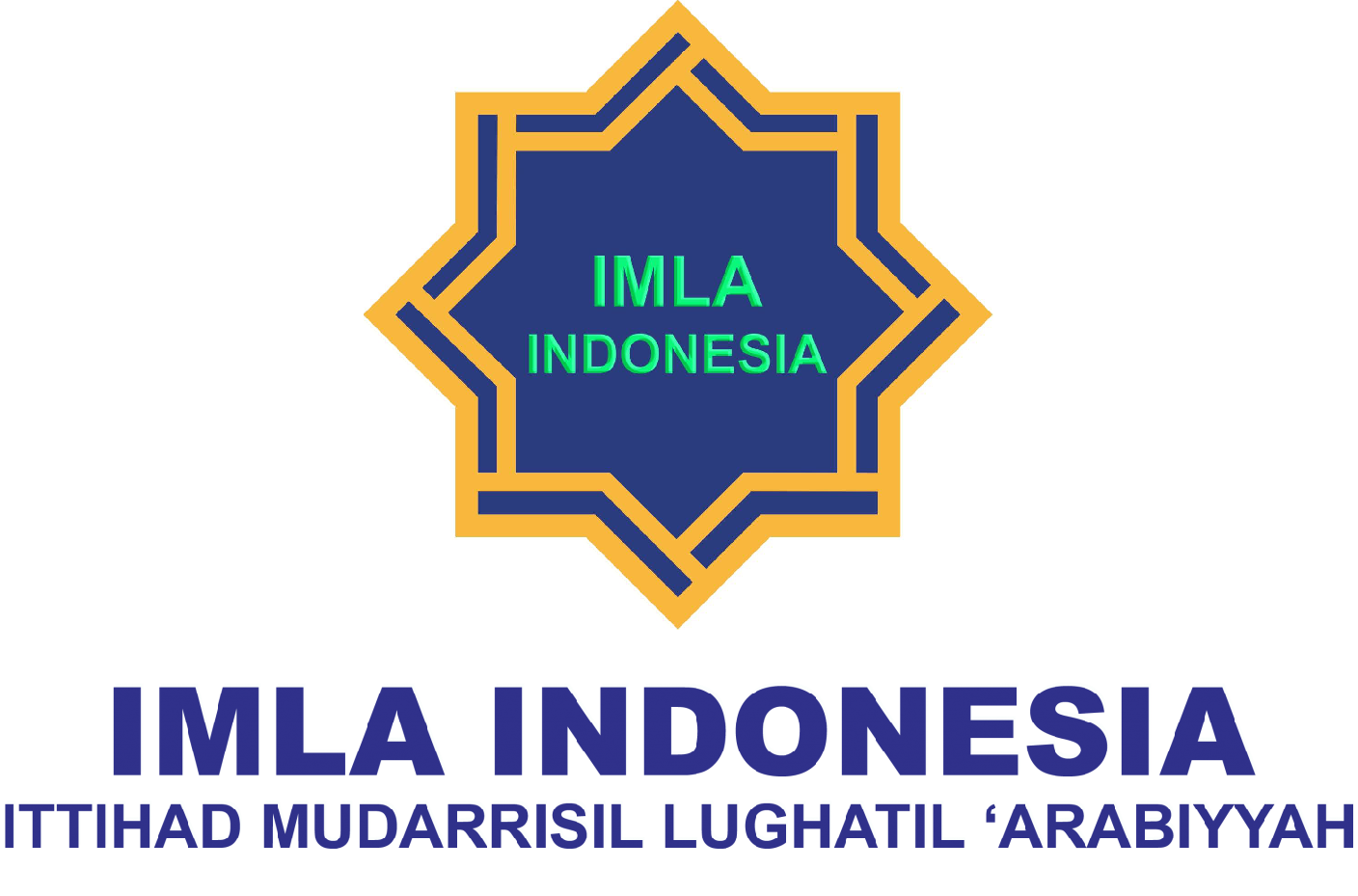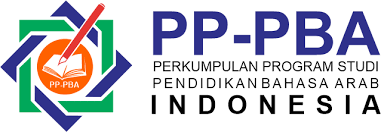Taá¹bÄ«q Biá¹Äqah al-MufradÄt fÄ« Dars al-Lughah al-Ê¿Arabiyyah li Tarqiyah NatÄ'ij MahÄrah al-KalÄm
DOI:
https://doi.org/10.30983/huruf.v3i2.7479Keywords:
Arabic Language, Learning Media, VocabularyAbstract
The purpose of this study is to describe the application of the vocabulary card to improve the results of teaching speaking skills for outstanding eighth-grade A students at the Islamic Junior High School 1 Getis Ponorogo and to describe the learning results after using an educational method, which is the vocabulary card. This research is of the classroom action research type. The researcher used the method of testing, observation, and written documents. As a result, the application of the vocabulary card improved the students’ results in the Arabic language subject, and this was evident in the first round, as it obtained a result of 80% from 26 students. In the second round, 26 students obtained a result of 100%. After completing this research, the researcher recommended that students should be interested in learning speaking skills and that the teacher should apply the vocabulary card in teaching the Arabic language subject.
الهد٠من هذه الدراسة وص٠تطبيق بطاقة المÙردات على ترقية نتائج تعليم مهارة الكلام لطلاب الص٠الثامن A المتÙوق ÙÙ‰ المدرسة الثانوية الØكومية الأولى جيتيس Ùونوروكو ووص٠نتائج التعليم بعد استخدام وسيلة تعليمية وهي بطاقة المÙردات. هذا البØØ« من النوع الÙصلي الإجرائي (Classroom Action Research)ØŒ استخدم الباØØ« طريقة الاختبار، والملاØظة، والوثائق المكتوبة. ومن نتيجة أن تطبيق بطاقة المÙردات تمكنت من الارتقاء بنتائج الطلاب ÙÙŠ مادة اللغة العربية وذلك تبين ÙÙŠ الدور الأول بØيث Øصل على نتيجة 80% من 26 طالبا. ÙÙŠ الدور الثاني Øصلوا على نتيجة 100% من 26 طالبا. بعد الانتهاء من هذا البØØ« قدم الباØØ« توصية Ù…Ùادها أن يهتم الطلاب بتعلم مهارة الكلام، كما أن يطبق المدرس بطاقة المÙردات ÙÙŠ تعليم مادة اللغة العربية.Â
References
Akzam, Ismail, Harif Supriady, and Alfitri Alfitri, ‘Improve Arabic Language and Islamic Skills with BISA System to Arab Village’, Linguistics and Culture Review, 5.S1 (2021), <https://doi.org/10.21744/lingcure.v5nS1.1447>
Ardiansyah, Ade Arip, Nanang Kosim, and Dini Oktaviani, ‘USE OF MEDIA INDEX CARD MATCH IN ARABIC LANGUAGE LEARNING TO IMPROVE STUDENT LEARNING OUTCOMES’, AL-MU’ARRIB: JOURNAL OF ARABIC EDUCATION, 3.2 (2023), <https://doi.org/10.32923/al-muarrib.v3i2.3657>
Aziz, Abdul aziz, Yusri Rahman, and Al-Husain Al-Hammadi, ‘Improvement of High School Students’ Speaking Arabic Skills Through Video Dubbing’, Izdihar : Journal of Arabic Language Teaching, Linguistics, and Literature, 5.1 (2022) <https://doi.org/10.22219/jiz.v5i1.18968>
Azwardi, ‘Metode Penelitian Pendidikan Bahasa Dan Sastra Indonesia’, Metode Penelitian, 2018.
Djuaeni, Muhammad Napis, and Ahmadi Usman, ‘Al-Lughah al-’ArabÄ«yah FÄ« al-Ma‘Ähid al-IslÄmÄ«yah BÄ« IndÅ«nÄ«sÄ«yÄ: MushkilÄtuhÄ Wa Ṭuruq ḤallihÄ’, Studia Islamika, 28.2 (2021) <https://doi.org/10.36712/sdi.v28i2.21936>
Irvansyah, Nur Cholis, Nurul Ainiy, and Zakiyah Arifa, "Implementation of Arabic Week Program to Improve Speaking Skills at Darussalam Gontor Modern Islamic Institution 1st", Al-Arabi: Journal of Teaching Arabic as a Foreign Language, 6.1 (2022), <https://doi.org/10.17977/um056v6i1p58-76>
Lukman Syah, Burhan, "Faa>liyatu Tanfiqoh As-Sam'iyyah As-Syafawiyyah biwasi>lati kitab Al-Fitroh Al-'Arobiyyah litarqiyati Maharotul Kala>m", Jurnal Ihtimam, 5.2 (2022), <https://doi.org/10.36668/jih.v5i2.406>
Lukman Syah, Burhan, Agus Umar Abdul Aziz, and Abdul Mu’ti, ‘Kreolisasi Bahasa Indonesia Dengan Bahasa Arab Pada Komunikasi Santri Pondok Modern Rafah Bogor’, ALFABETA: Jurnal Bahasa, Sastra, Dan Pembelajarannya, 5.2 (2022), <https://doi.org/10.33503/alfabeta.v5i2.2138>
Mohammed, Tawffeek, ‘Designing an Arabic Speaking and Listening Skills E- Course: Resources, Activities and Students’ Perceptions’, Electronic Journal of E-Learning, 20.1 (2022), <https://doi.org/10.34190/ejel.20.1.2177>
Nasuha, Ali, and Elsa Sepputri, ‘Al-TahlÄ«l al-WasfÄ« ‘an MawÄd MahÄrah al-KalÄm FÄ« KitÄb DurÅ«s al-Lughah al-Ê¿Arabiyyah Li Manhaj 2013’, HuRuf Journal : International Journal of Arabic Applied Linguistic, 3.1 (2023), <https://doi.org/10.30983/huruf.v3i1.6283>
Roji, Muhammad Fatkhu, Umi Hijriyah, and Ahmad Nur Mizan, ‘Improving Madrasah Students’ Mufradat Memorization Ability Using Picture Card Media (Flash Card)’, Ensiklopedia: Jurnal Pendidikan Dan Inovasi Pembelajaran Saburai, 3.02 (2023), <https://doi.org/10.24967/esp.v3i02.2439>
Seni, Mata Pelajaran, Budaya Seni, Rupa Sma, Kelompok Kompetensi, J Winarto, and M Pd, ‘Penelitian Tindakan Kelas Kompetensi Pedagogik’, 2016
Sugiyono, Metode Penelitian Pendidikan (Pendekatan Kuantitatif, Kualitatif, dan R&D) (Bandung: Alfabeta, 2015)
Suryadarma, Yoke, and Aries Fauzan Najib, "Fa'a>liyatu Tanfi>dzi Istiro>ti>jiyatu At-Ta'li>m Al-Jama>'i Fi> Ma>dati Al-Muth>ala'h lirof'i nsya>thi ta'li>m", Taqdir, 7.2 (2021)
Sutoyo, TEKNIK PENULISAN PENELITIAN TINDAKAN KELAS, 2001
Syah, Burhan Lukman, Muhammad Safari, and Reiza Aufa Ulwan, ‘Implementation of Digital Story Telling (DST) Strategy in Arabic Learning (Case Study at Arrifaie Gondanglegi Middle School Malang)’, Insyirah: Jurnal Ilmu Bahasa Arab Dan Studi Islam, 6.1 (2023), <https://doi.org/10.26555/insyirah.v6i1.8058>
Wahidah, Zulfa Amalia, Umi Baroroh, and Abdur Rasheed-Mahmoud Mukadam, ‘The Implementation of Eclectic Methods in Arabic Learning Based on All in One System Approach’, Jurnal Al Bayan: Jurnal Jurusan Pendidikan Bahasa Arab, 13.1 (2021), <https://doi.org/10.24042/albayan.v13i1.6379>
Downloads
Published
Issue
Section
Citation Check
License
Authors who publish with this journal agree to the following terms:
- Authors retain copyright and grant the journal right of first publication with the work simultaneously licensed under a Creative Commons Attribution-ShareAlike 4.0 International Licensethat allows others to share the work with an acknowledgment of the work's authorship and initial publication in this journal.
- Authors are able to enter into separate, additional contractual arrangements for the non-exclusive distribution of the journal's published version of the work (e.g., post it to an institutional repository or publish it in a book), with an acknowledgment of its initial publication in this journal.
- Authors are permitted and encouraged to post their work online (e.g., in institutional repositories or on their website) prior to and during the submission process, as it can lead to productive exchanges, as well as earlier and greater citation of published work (See The Effect of Open Access).










